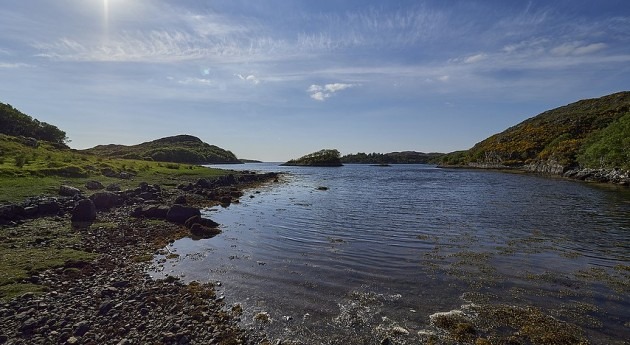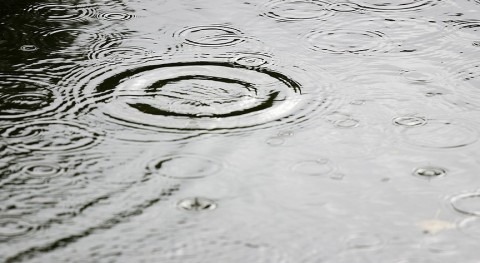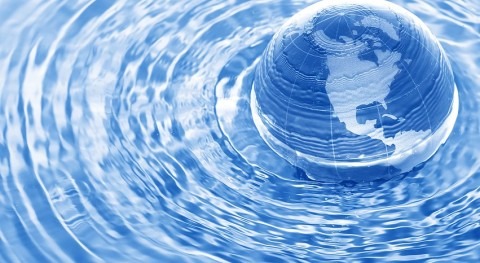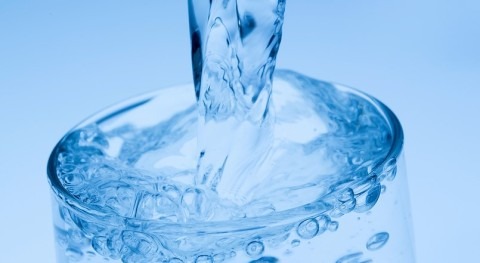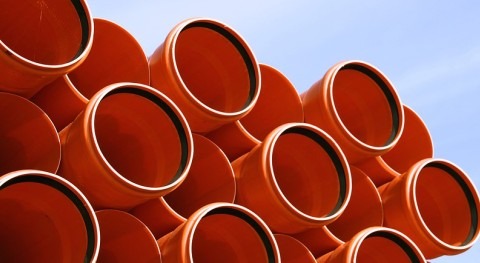Although Scotland is famous for its relatively rainy weather, with the western Highlands on of the wettest places in the whole of the UK, in fact, it seems that the country is still likely to be affected by the climate crisis, with water stress and scarcity a very real issue facing many regions even now.
It’s expected that the changing climate will bring with it greater levels of uncertainty regarding water resources, putting pressure on those places that are lucky enough to have escaped water scarcity issues up till now.
The Scottish Environment Protection Agency (SEPA) has just brought out its Water Scarcity Report for June 30th (a document that’s published on a weekly basis), revealing that the rivers Anna, Nith, the Black Isle and the Outer Hebrides are all now classified as having Significant Water Scarcity status, alongside the Loch Maree area.
When a region reaches this level of water scarcity, additional action is considered to protect local water environments. For example, abstraction licences in some areas may see reductions in the allowable volume of water abstracted, or they may be suspended entirely.
Other news from the June 30th report shows that the Nairn, Spey, Findhorn and Dee catchment areas have now increased to Moderate Water Scarcity levels, with river flows remaining extremely low, while Shetland has now risen to Alert level.
Some localised improvements have been seen, however, such as the recovery of the Awe and Etive area of Argyll and Bute, off the back of widespread showers and heavy rainfall in central and western Scotland.
Regardless, it is important to note that this amount of rain has still been insufficient for a large-scale recovery, with many areas still facing risks of water scarcity.
The Highlands
Halfway through June, Highland Council’s environmental health team issued a warning that some private water supplies in the region could run dry because of insufficient rainfall, with surface water supplies particularly at risk.
There are more than 2,700 private water supplies in the Highlands, providing around 40,000 people in rural areas with water where no treated mains water supplies are available.
To help ease pressure on local communities, bottled water is being made available to those domestic households that have seen their private water supplies disappear and where they’ve been unable to make alternative arrangements.
Patricia Sheldon, senior environmental health officer, said: “We are offering support to these users and would advise everyone to check their water supplies to try and conserve the use of water as best they can. Also think about a contingency plan in case you do run out of water such as buying some bottled water and speaking with any neighbours who may be able to offer water should you need it.
“While the Council is not responsible for the maintenance of private water supplies nor required to provide water, a lack of safe drinking water is a significant public health concern. It is for this reason that the Scottish Government has announced a Local Authority funded emergency water scheme for the supply of bottled water for drinking.”
Using water wisely
The SEPA has reminded businesses and individuals alike that everyone has a role to play in managing the water environment and it’s vital that companies, big and small, follow the conditions laid out in their abstraction permits.
To this end, they’re now being advised to plan ahead as spring and summer are crucial seasons for water demand and prioritising water efficiency now can help businesses avoid potential issues later in the year, saving money and increasing resilience to the possible impacts of prolonged drought conditions.
Now’s the time to consider planning, monitoring and recording your water usage and consumption to ensure that you’re meeting the requirements set out in your abstraction permit, as well as furthering your knowledge and understanding of the implications of water stress and scarcity for your overall operations.
Other suggestions from the SEPA include ensuring that equipment is kept in good working order and carrying out a review of your infrastructure so you can determine the costs and benefits of abstraction, calculating just how valuable water is to your business.
Doing so will help you plan any necessary investments you need to make in both equipment and infrastructure.
Furthermore, the SEPA suggests investigating whether there are more innovative ways in which you could be working as a business to help drive future water efficiency improvements across the board.
What else can businesses do?
If reducing your water footprint is fast becoming a top priority for you and your company as you strive to improve your green credentials and start operating more sustainably, you’ll be pleased to hear that there’s a lot you can achieve in this regard.
An excellent first step to take is to have a water audit carried out across your entire site so you can see how you’re using water and where. This will help you identify any weak areas that could be improved upon, as well as identifying any potential leaks you may have onsite that you aren’t aware of.
One of the most immediate ways you can improve your water efficiency is by targeting water leakage, which is a serious issue around the country because the nation’s pipe infrastructure is gradually falling into a state of very real disrepair.
It’s been in place since Victorian times and much of it is in need of an upgrade, so you may have a leak and not even know about it, potentially wasting huge amounts of water unnecessarily – and costing yourself a pretty penny into the bargain.
Place water usage at the heart of your business sustainability plan.




